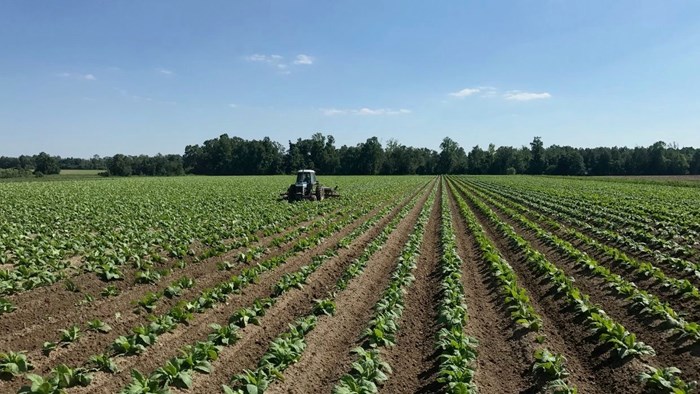Migrant Workers Are Indispensable to America’s Farms. It’s Time for Congress to Protect Them.

Americans are facing sticker shock as inflation continues to cast its shadow over the economy. Nowhere is this more apparent than at the grocery store, as prices have surged 12% in the past year. Food costs are at their highest point in decades.
As both a fourth-generation farmer and a pastor who works with local communities in eastern North Carolina, I know all too well that our food supply is dependent on migrant farmworkers. Yet while many farm owners treat their workers well, even as a part of their family, there are others who exploit the legal limbo in which workers live because of our country’s archaic immigration policies.
That’s why I urge our new Congress to enact immigration reform that addresses this lack of a stable agricultural workforce, not just to protect migrants who work on farms like my own and to ensure our country has access to affordable food, but also to affirm the biblical value of loving the stranger. That value is central to my Christian faith.
For as long as I can remember, the farm has been my home. Throughout my almost 40 years of farm work, migrant workers have been critical to my success. But my experience with immigrant workers has not just been invaluable because of their contributions to the farm; it’s also been an opportunity for me to live out and share my beliefs.
Throughout the Bible, God calls on us to love and welcome the stranger. As a pastor, I have long taught that loving the stranger as we love Christ is a core pillar of our faith.
Leviticus 19:33-34 perfectly encapsulates what this love looks like: “‘When a foreigner resides among you in your land, do not mistreat them. The foreigner residing among you must be treated as your native-born. Love them as yourself, for you were foreigners in Egypt. I am the Lord your God.”
Immigrants, including those who are undocumented, come to our country in search of a better life. While it’s important that we uphold the rule of law, it’s just as important that we protect the sojourner and ensure that the migrant workers who produce our food have a chance to build a future. Unfortunately, a bipartisan immigration solution to help ensure we meet both of these goals, the Farm Workforce Modernization Act, failed to get a vote in the U.S. Senate in the last Congress after passing the House of Representatives. I pray it will be reconsidered in this new Congress.
The bill would end the current requirement that temporary migrant farmworkers return to their home countries after nine months. It would instead allow up to 20,000 of these workers to enroll in a three-year visa program.
However, the most important component of the Farm Workforce Modernization Act is a provision that would allow hundreds of thousands of undocumented workers to receive permanent legal status if they pay a fine as restitution for their violation of the law, a policy that both honors the law and is compassionate. That’s likely why a recent poll finds that 82 percent of white evangelical Protestant voters want to see bipartisan immigration reforms to reduce food costs by ensuring a legal, reliable agricultural workforce.
As inflation and soaring food costs continue to hurt families in North Carolina and around the country, Congress has a perfect opportunity not just to help build a more stable agricultural workforce but to affirm the God-given dignity of migrant workers—including those who are my colleagues and friends.
Danny Sykes is a fourth-generation farmer and an associate pastor at Grace Baptist Church in North Carolina.
The Better Samaritan is a part of CT's
Blog Forum. Support the work of CT.
Subscribe and get one year free.
The views of the blogger do not necessarily reflect those of Christianity Today.





















